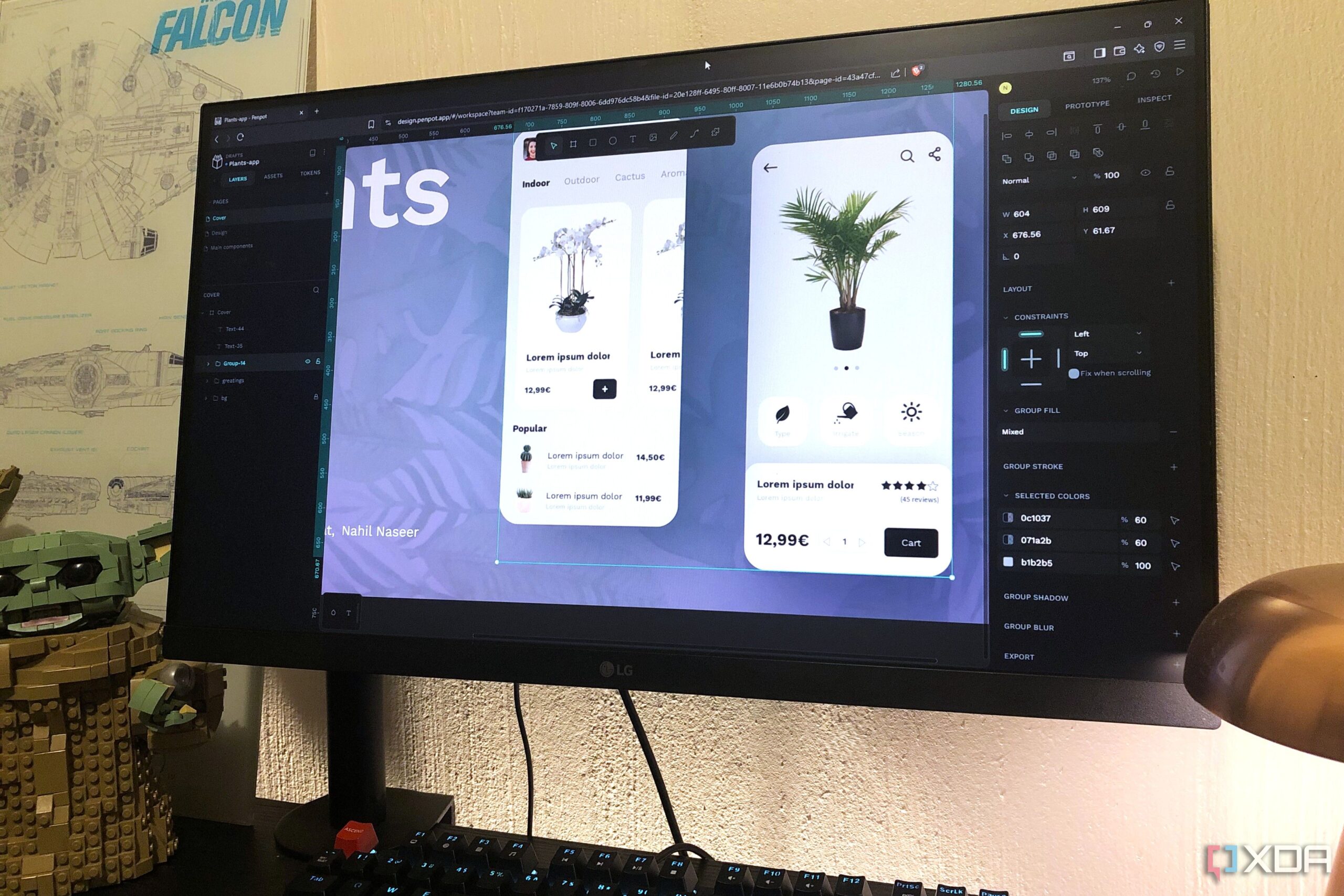Top Stories
Designer Switches from Figma to Penpot in Urgent Shift

URGENT UPDATE: A growing number of designers are making the switch from Figma to Penpot, as one user shares their compelling reasons for the transition. This shift highlights a significant trend in UI/UX design, where the need for privacy and accessibility is becoming paramount.
In a recent announcement, a designer revealed that they have stopped using Figma and switched to Penpot, asserting that while Figma remains the industry standard, it comes with challenges such as paywalls and cloud dependency. Penpot, an open-source alternative, offers a similar interface but emphasizes user control and privacy.
Penpot positions itself as a free, browser-based design tool, making it accessible for users across various operating systems. Unlike Figma, Penpot allows self-hosting, which the designer has opted for through Elestio. The transition was described as a natural evolution rather than a protest against Figma’s capabilities.
The designer emphasizes that Penpot provides extensive features, including vector editing, interactive prototyping, and collaboration tools, all free of charge. Notably, Penpot’s code inspection and developer handoff features are available without a subscription, contrasting sharply with Figma’s paid offerings.
Although Penpot has fewer plugins compared to Figma, the designer appreciates the application’s built-in functionalities, such as native CSS Grid support. Penpot’s focus on web standards like SVG allows for faster performance, particularly on devices with limited resources, such as Chromebooks.
However, the designer also points out the limitations of Penpot, including its lack of a whiteboard tool and fewer integrations with popular applications like Notion, Jira, and Slack. Despite this, the emotional appeal of reduced reliance on proprietary systems and subscription models has resonated strongly with many users.
As more designers prioritize privacy and control over their design environments, the migration to Penpot could signal a notable shift in the design community. The rapid adoption of this open-source tool may change the landscape of UI/UX design, prompting further discussions about the future of proprietary software.
For those interested in exploring this shift, Penpot is available for free, allowing users to experience its extensive functionality without the hurdles of subscription fees. With updates driven by both the core development team and community contributions, Penpot is poised for continued growth in the design sector.
What’s next? As this trend develops, keep an eye on how Penpot’s user base evolves and whether it will gain traction against established giants like Figma. With privacy and accessibility at the forefront, the design world may witness a transformative shift in the coming months.
-

 Science3 weeks ago
Science3 weeks agoInventor Achieves Breakthrough with 2 Billion FPS Laser Video
-

 Health4 weeks ago
Health4 weeks agoCommunity Unites for 7th Annual Into the Light Walk for Mental Health
-

 Top Stories4 weeks ago
Top Stories4 weeks agoCharlie Sheen’s New Romance: ‘Glowing’ with Younger Partner
-

 Entertainment4 weeks ago
Entertainment4 weeks agoDua Lipa Aces GCSE Spanish, Sparks Super Bowl Buzz with Fans
-

 Business4 weeks ago
Business4 weeks agoTyler Technologies Set to Reveal Q3 Earnings on October 22
-

 Entertainment4 weeks ago
Entertainment4 weeks agoMother Fights to Reunite with Children After Kidnapping in New Drama
-

 Health4 weeks ago
Health4 weeks agoCurium Group, PeptiDream, and PDRadiopharma Launch Key Cancer Trial
-

 World4 weeks ago
World4 weeks agoR&B Icon D’Angelo Dies at 51, Leaving Lasting Legacy
-

 Entertainment4 weeks ago
Entertainment4 weeks agoRed Sox’s Bregman to Become Free Agent; Tigers Commit to Skubal
-

 Health4 weeks ago
Health4 weeks agoNorth Carolina’s Biotech Boom: Billions in New Investments
-

 Science4 weeks ago
Science4 weeks agoNorth Carolina’s Biotech Boom: Billions Invested in Manufacturing
-

 Top Stories3 weeks ago
Top Stories3 weeks agoFormer Mozilla CMO Launches AI-Driven Cannabis Cocktail Brand Fast









